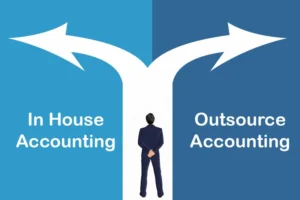Paying corporate taxes is vital for business owners in Canada, as it’s the CRA’s way of ensuring you comply with tax regulations and contribute to public service. In 2025, some significant changes are coming into effect, including changing the filing tax deadlines for 2025 and introducing new incentives for small businesses. If you fail to file your tax return for 2025 on time, you may incur significant penalties.
Businesses that maintain accurate tax records are less likely to face financial difficulties. So, keep reading the article if you don’t want to incur damaging penalties, and I will walk you through every necessary detail you must know as a business owner in 2025.
Quick Takeaways
- T2 returns must be filed within 6 months of the fiscal year-end to avoid penalties.
- Late filing penalties start at 5% of the unpaid balance, plus 1% per month for up to 12 months.
- Online filing is mandatory for corporations with annual revenue exceeding $1 million—paper returns are not accepted.
Navigating Through Corporate Tax Filing Deadlines in 2025
Owning a corporation in Canada has several aspects besides deriving profit from it. One crucial element is comprehensively educating yourself about corporate tax filing deadlines in Canada. The basic rule that has been the same for years is that corporations must file their T2 tax return within six months of their fiscal year-end. Every corporation’s fiscal year may differ from the other. Therefore, their filing deadline is unique.
Understanding Your Tax Payment Requirements
Running a corporation in Canada comes with various challenges, so it’s best to be fully aware of the taxation regulations and its process to avoid penalties and interest charges. One crucial element is comprehensively educating yourself about business tax filing and tax paying deadlines in Canada.
The basic rule that has been the same for years is that corporations must file their T2 tax return within six months of their fiscal year-end. Every corporation’s fiscal year may differ from the other. Therefore, their filing deadline is unique.
I will help you understand the balance- due date (the time you must pay your taxes), installment requirements, and any exceptional circumstances that may impact your corporation’s tax payments.
Provincial Corporate Tax Rates
In Canada, corporate tax rates vary by province and are influenced by factors such as eligibility for the Small Business Deduction (SBD) and whether a corporation is a Canadian-Controlled Private Corporation (CCPC). Additionally, provinces may offer specific incentives or credits to encourage business activities.
Below is a summary of the provincial corporate tax rates for active business income as of 2025:
| Province/Territory | Income Eligible for SBD (%) | General Corporate Tax (%) |
| Newfoundland and Labrador | 2.50 | 15.00 |
| Prince Edward Island | 1.00 | 16.00 |
| Prince Edward Island | 2.50 | 14.00 |
| New Brunswick | 2.50 | 14.00 |
| Quebec | 3.20 | 11.50 |
| Ontario | 3.20 | 11.50 |
| Manitoba | 0.00 | 12.00 |
| Saskatchewan | 1.00 | 12.00 |
| Alberta | 2.00 | 8.00 |
| British Columbia | 2.00 | 12.00 |
| Yukon | 0.00 | 12.00 |
| Northwest Territories | 4.00 | 11.50 |
| Nunavut | 3.00 | 12.00 |
Rates are current as of January 15, 2025.
Small Business Deduction (SBD): CCPCs can benefit from the SBD, which reduces the corporate income tax rate on active business income up to a certain threshold, typically $500,000. This deduction aims to support small businesses by lowering their tax burden.
CCPCs vs. Non-CCPCs: CCPCs often enjoy lower tax rates compared to non-CCPCs, especially on income eligible for the SBD. Non-CCPCs are subject to the general corporate tax rates without access to the SBD.
Provincial Incentives and Credits: Many provinces offer additional incentives to encourage specific business activities. For example:
- Saskatchewan: Provides a tax reduction of up to two percentage points for corporations involved in manufacturing and processing activities, depending on the extent of the company’s presence in the province.
saskatchewan.ca - British Columbia: Offers a natural gas tax credit to qualifying corporations that develop natural gas and have an establishment in the province. The credit can reduce the effective provincial corporate income tax rate to a minimum of 9% (from 12%), with any unused credit being carried forward indefinitely.
taxsummaries.pwc.com
These incentives are designed to promote economic development and investment within the provinces.
What is the Balance-Due Date?
The balance-due date is entirely different from the filing deadline for a corporation’s tax return. It is a date you must remember to pay the remaining tax you owe for the tax year.
For corporations, this deadline is two months after the tax year-end. So, if your corporation’s fiscal year ended on December 31, 2024, you have until February 28, 2025, to pay the remaining tax you owe.
What Are the Exceptions and Which Corporations Qualify?
However, some specific corporations can extend this deadline to three months after the fiscal year-end. These corporations are qualified if they meet conditions 1 and 2 that follow, and also conditions 3 or 4:
- The corporation is specified as a Canadian-controlled private corporation (CCPC) throughout the fiscal year-end.
- The corporation has gotten the small business deduction for the current or previous tax year.
- If the corporation is not associated with any other corporation during the tax year:
The corporation’s income did not go beyond the business limit for the previous tax year. - If the corporation is associated with other corporations during the tax year:
The total taxable incomes of all associated corporations for their last tax year ending in the previous calendar year do not exceed their business limits for those years.
Installment Requirements
Corporations in Canada are often advised to pay the tax they owe in installments throughout the year. These installments can be monthly or quarterly, based on the business’s tax year. Paying due tax in installments ensures the CRA that you can cover the tax liability. It’s also a way to ensure you don’t miss corporate tax 2025 due dates in Canada.
What is Quarterly Installment?
Most corporations must pay their due taxes on the last day of each quarter of their fiscal year.
If the corporation follows a standard calendar year (January 1 to December 31), the fiscal year-end would be December 31, and the payment deadlines would be as follows:
| First installment | March 15, 2025 |
| Second installment | June 15, 2025 |
| Third installment | September 15, 2025 |
| Fourth installment | December 15, 2025 |
What is Monthly Installment?
Some larger corporations are required to pay their tax in monthly installments, usually by the end of each month of their fiscal year. Instead of paying a lump sum at tax time, businesses spread out their payments to manage cash flow better and avoid penalties.
Example:
Let’s say your corporation’s estimated tax payable for 2025 is $120,000. Instead of paying this all at once, you would make monthly installments:
Monthly payment: $10,000
Due date: Last day of each month
First installment: January 31, 2025
Final installment: December 31, 2025
This system helps businesses stay compliant and manage finances smoothly, ensuring there are no surprises when tax season arrives.
Special Circumstances
In particular circumstances, you may not be eligible to pay your due tax to the CRA in monthly or quarterly installments. These circumstances include:
New Corporations
If a corporation is newly established, it cannot pay the first year’s taxes owed in installments. Therefore, it must be paid in full before the balance-due date.
Note: In the second year of your corporation’s operation, you must pay your taxes owed in monthly or quarterly installments.
Tax Amount of <=$3,000
Corporations with a total tax amount of $3000 or less are not obligated to pay the owed taxes in installments; instead, they should pay it all together.
Short Tax Year
In the case of small Canadian Controlled Private Corporations (CCPCs), shorter than one quarter or a tax year shorter than one month for other corporations, you don’t have to make an installment payment.
| Type of Corporation | Payment Deadline | Installment Requirement |
| General Corporation | 2 months after the fiscal year-end | Quarterly or Monthly, based on income |
| Eligible CCPC | 3 months after the fiscal year- end | Quarterly or Monthly, based on income |
| Newly Incorporated Corporation | Based on the first fiscal year-end | Only the second year and after that |
| Tax Amount of <=$3000 | All together based on the fiscal year | – |
| Short Tax Year | All together based on the fiscal year | – |
Are you considering opening a corporation in Canada or the US but unsure which one has better tax systems? Check out our Comprehensive Comparison Between the Canadian Tax System vs the US article.
Smart Tax Strategies for Canadian Businesses
Maximizing tax savings is essential for businesses looking to improve cash flow and reinvest in growth. By leveraging lesser-known deductions, credits, and tax planning techniques, you can significantly reduce your corporate tax burden while staying fully compliant with CRA regulations.
Unlock Hidden Tax Deductions to Reduce Your Tax Bill
If you have a corporation in Canada in 2025 and are wondering how to find some beneficial lesser-known tax deductions to lower your taxes owed, you’re in the right place!
Here, I will introduce you to a crucial, lesser-known tax deduction you can use to maximize your benefits.
Vehicle Usage Tax Deduction
Many corporations don’t know they can deduct expenses running a motor vehicle they use to earn business income, and therefore, end up paying a lot more tax than they should.
The expenses are as follows:
| Expense Type | Typical Deductible Percentage |
| License and registration fees | 100% (if fully business use) |
| Fuel and oil costs | % of business km driven |
| Electricity costs (zero-emission vehicles) | % of business km driven |
| Insurance | % of business km driven |
| Interest on borrowed money (for purchase) | % of business km driven |
| Maintenance and repairs | % of business km driven |
| Leasing costs | % of business km driven |
To deduct motor vehicle expenses, you must have reasonable documents and receipts to support the costs.
To get the full benefit for vehicles, keep a thorough record depicting the total kilometers you drive which results in earning business income.
Maximizing Tax Savings Through Vehicle Usage Deduction
Background: A mid-sized IT consulting firm based in Toronto, Ontario, Canada, has a fleet of vehicles used by its consultants for client visits and project implementation.
Last year, they noticed a consistent increase in their annual tax liabilities over the past three years. Once we reviewed their financial statements, we soon realized that they were not fully using the available tax deductions for vehicle usage to their advantage.
Challenge: They were unaware that several expenses related to the operation of their vehicles could be deducted from their taxable income. This oversight led to higher tax payments, reducing their overall profitability.
Approach: Our accounting team decided to conduct a detailed review of the company’s vehicle expenses and implement a systematic approach to track and document these expenses better.
Documenting Business Usage:
- They introduced a mileage logbook for each vehicle. Employees were instructed to record the kilometers driven for business purposes, specifying the dates, destinations, and reasons for each trip.
- A monthly review process was set up to ensure all vehicle usage was correctly categorized as business or personal.
How SAL Accounting Helped EPSOL Save 48% on Corporation Tax?
The Struggle
When EPSOL, a rising star in digital marketing, came to us, it was struggling with corporation tax complexities. One of our team’s experts reviewed last year’s books and noticed it was not claiming the maximum deduction for its contractors overseas.
This resulted in not reinvesting their profits to fuel further growth because they paid much higher taxes than they should have.
Our Solution
We advised them to always obtain invoices from overseas contractors and to improve their money trail when paying overseas.
Results
- Achieve $8,400 in annual tax savings
- Improve documentation for overseas payments
- Enhance ability to reinvest in growth
To read more SAL Accounting success stories, visit the stories section on our website!
Professional Tax Support: How SAL Accounting Helps
Having a corporation has many aspects. In addition to managing operations, growing your market, and caring for your team, you must also remember the deadlines for filing and paying your corporation taxes.
At SAL Accounting, we know precisely how exhausting and challenging the taxation process can get, considering the detailed tax regulations set by the CRA.
The good news is that you don’t have to be alone in this! Our specialized team is dedicated to assisting businesses like yours in managing tax obligations more confidently and effortlessly.
We offer various services to ensure the process is smooth and less complicated. Our services range from preparing and filing your T2 returns to providing strategic tax planning tailored to your business needs. We handle the small details you might have overlooked throughout the year so you can focus on what you are best at—running your business!
Final Words
In this article, I walked you through the importance of not missing corporation tax deadlines, as it can have consequences like severe financial penalties or charged interest on your unpaid taxes.
I also noted some beneficial expert tips to ensure the process can go smoothly without facing any challenges or penalties.
Running a corporation in Canada is challenging enough, let alone adding pressure on yourself by putting off the bookkeeping and tax filings and payments at the last minute and often missing the deadlines!
Leave all the tax season stress behind. Contact SAL Accounting today, and let our professional team help you through any struggles you might have with the taxation process.
FAQs
If your corporation’s fiscal year does not end on December 31st, your corporate taxes are due six months after your specific fiscal year-end. For example, if your fiscal year ends on March 31st, the filing deadline would be September 30th. Staying updated with your unique filing dates ensures tax compliance.
The CRA typically processes business tax returns within 4 to 6 weeks if filed electronically. Paper filings can take longer, up to 8 weeks or more. Using the CRA’s online services is advisable to shorten the waiting time for processing your documents.
Yes, many Canadian corporations must make monthly or quarterly installments to the CRA, especially if their annual tax payable exceeds certain thresholds. This helps ensure the corporation has no large balance due at year-end, fostering consistent tax compliance.
In certain situations, the CRA may grant extensions for filing corporate tax returns, particularly if a corporation faces exceptional circumstances. However, it’s best to request an extension before the deadline to ensure compliance with CRA business tax rules.
An audit is a detailed examination of a corporation’s financial records, tax filings, and business operations to verify that the taxes reported and paid are accurate and in line with CRA business tax rules.
Therefore, The CRA audits corporate tax returns to ensure accuracy and compliance with tax laws. If selected, keeping thorough financial records and maintaining transparency can ease the audit process.
Corporate tax rates may vary by province, in addition to the federal rate. This variation is key to ensuring you comply with tax rules in businesses operating in multiple provinces. For example:
- In Ontario, most corporations’ combined federal and provincial tax rate is approximately 26.5%.
- In British Columbia, it’s around 27%.
- In Alberta, businesses benefit from a lower combined rate of about 23%.
You can file your business tax returns online using the CRA’s My Business Account or CRA-certified tax software. Online filing is faster and helps ensure you meet the CRA’s compliance requirements and avoid business tax penalties.
Common mistakes regarding corporate tax deadlines include:
- Missing deadlines
- Underestimating tax liabilities
- Incorrect installment payments
- Failing to keep accurate financial records
These mistakes can lead to severe penalties, interest charges, and sometimes legal actions against the business.
Businesses can calculate installment payments using:
- Current-Year Method: Based on estimated current-year taxes.
- Prior-Year Method: Based on the previous year’s taxes.
- Combination Method: A mix of the two above methods.
The CRA provides online tools and guidance to help businesses determine the correct amount.
Keeping accurate financial records ensures:
- Correct Tax Calculations: Prevent underpayment or overpayment of taxes.
- Compliance: Meet CRA’s reporting period and requirements.
- Efficient Audits: Simplify audits and reduce the likelihood of disputes or penalties.
- Informed Decisions: Provide reliable data for business planning and strategy.






